Our Farming Practices
As of 2022, Ridge has received organic certification for 100% of the vines at our Monte Bello, Lytton Springs, Geyserville, and East Bench vineyards. We also employ a variety of regenerative farming practices designed to improve soil quality over time.
What Kind of Sustainable and Regenerative Farming Practices Does Ridge Currently Use?
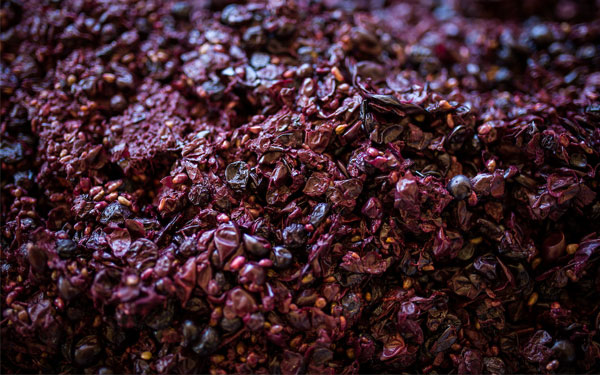
1. Compost
Each year, we compost all of our grape stems and pomace (fermented skins and seeds), along with our neighbors’ horse manure and other amendments such as organically sourced lime and gypsum and spread it in our vineyards following harvest. This practice helps to regenerate organic matter in our soil, which in turn feeds our vines.
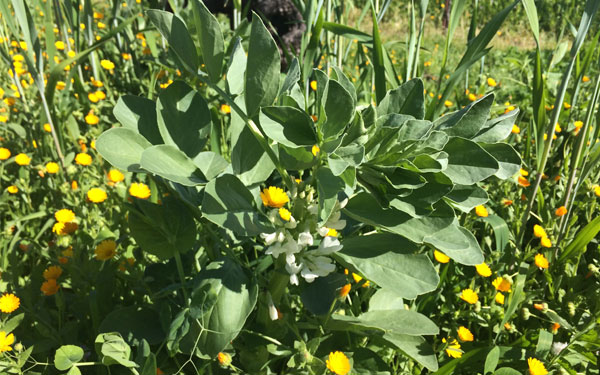
2. Cover Crops
We use several different cover crops depending on our goals for each vineyard block. These include soil-building legume and grass mixes to add nitrogen and organic matter; insectary plantings to increase the population of beneficial insects; grasses and clovers to control erosion; and deep-rooted perennial grasses to control vine vigor in excessively fertile soils.
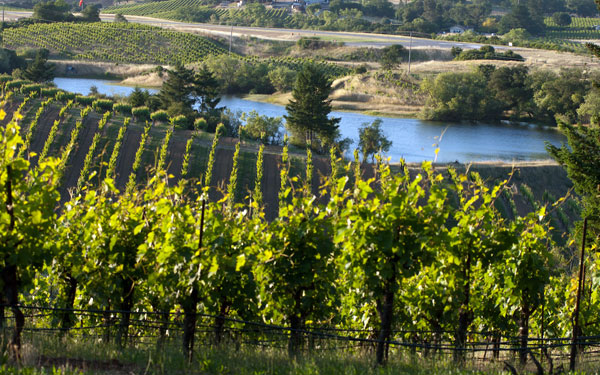
3. Water Conservation
We look to conserve water in a variety of ways. One is by monitoring our vineyards at the vine level with the latest sensor technology to make sure that any irrigation we do is necessary. The sensors measure the sap-flow of individual vines, which provides us very specific data about their water needs. In addition, we recycle our winery grey water onsite so that it can be used for irrigation, if needed.
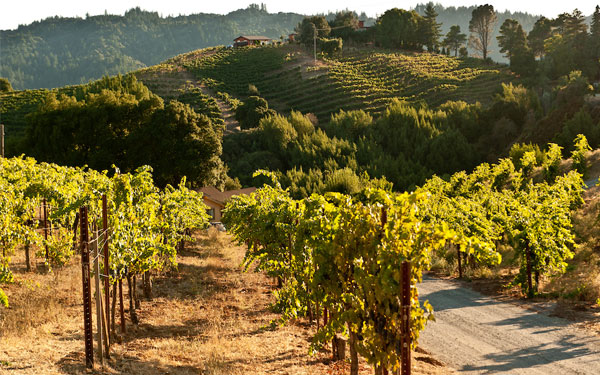
4. Low/No Tillage
We practice no till (mow only) on our hillside vineyard blocks to help minimize erosion and build organic matter in the soil. In blocks where the vines need additional nitrogen (see our cover crop practices), we mow alternate rows to keep them in permanent cover. Our under-vine weed management includes a combination of mow-only, tillage (mechanical and/or manual), and strictly organic applications.
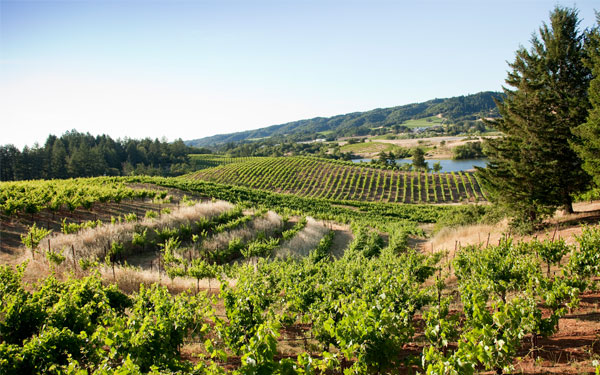
5. Use of Hedgerows
Hedgerows in vineyards are very useful. They help harbor and expand beneficial insect populations, provide shelter for animals, shade for waterways, fix carbon from the atmosphere, and break up the monoculture of vineyards. We first planted hedgerows in the early 2000s and have recently expanded on those plantings to over 8,000 linear feet, just under 2 acres in area.
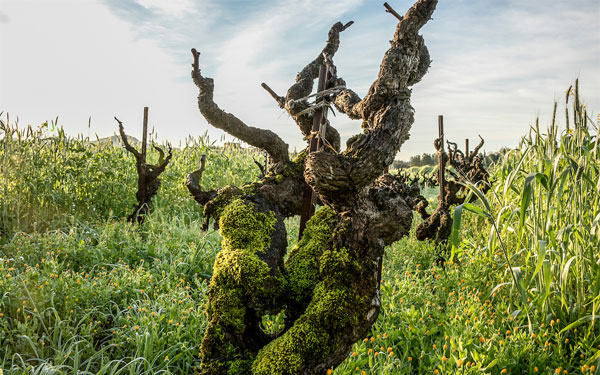
6. Focus on Old Vines
We value old vines (more than 50 years old) for a variety of reasons. Most importantly, they usually make great wines. The reason that many old vineyards have survived the latest trend or housing development is because they are special sites where the fruit has grown more complex and concentrated over the decades, with mixed plantings of grapes that are nicely adapted to our climate.
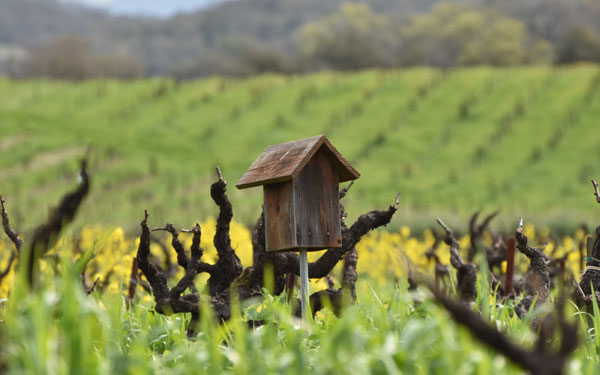
7. Integrated Pest Management
Integrated Pest Management, or “IPM,” is an approach to managing pests and diseases that combines a wide array of farming practices, with careful monitoring of pests and their natural enemies to prevent crop damage. An important overall goal of IPM is to reduce or eliminate use of both organic and synthetic pesticides.
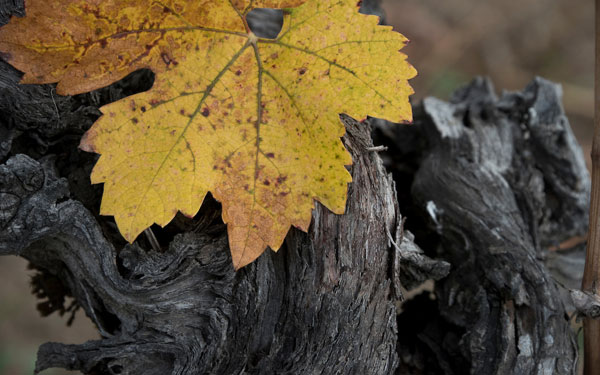
8. Beneficial Insects
Instead of spraying to control vine-damaging spider mites, we use beneficial insects to reduce their populations to insignificant levels. Careful monitoring of the mites, along with inundating the vineyard with the pest’s natural enemies, means we don’t have to apply broad-spectrum insecticides, which can potentially harm beneficial insects.
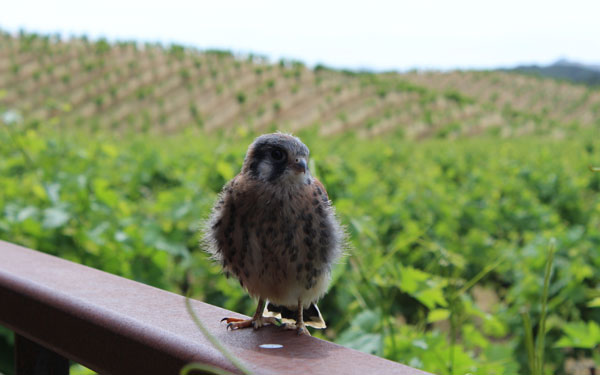
9. Birds for Pest Control
We use raptor roosts and bird boxes to help with insect and rodent control. This includes larger boxes for barn owls and smaller ones for bluebirds. Every winter after the birds have migrated south, we maintain and clean the boxes to ensure their use by wildlife the following season.
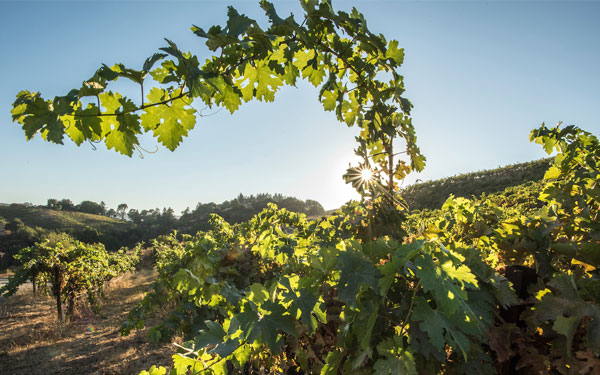
10. Vine Balance
Vine balance is essential to producing flavorful wines of distinction and longevity. To achieve balance, we may remove excess fruit to create ideal ripening dynamics within the berries or apply water to sustain vines that would otherwise be parched or stressed. Ultimately, balance is assessed on a vine-by-vine basis in order to meet our high standards for fruit quality.
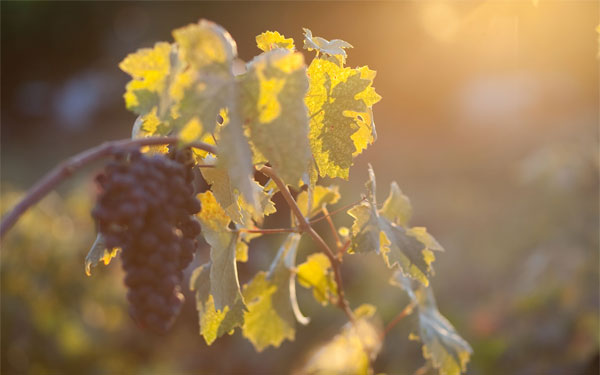
11. Education
Our commitment to sustainable farming leads to our involvement in several organizations that foster new ideas about agriculture and environmental stewardship. We have participated in an agroecology diversity project with UC Berkeley, which will evaluate the use of cover crops and hedgerows to promote beneficial insects. The non-profit Vineyard Team, working toward sustainability in wine grapes, is collaborating with us on a cover crop trial of various clovers to assess their effectiveness in attracting beneficial insects. We are also working on a variety of projects with the California Land Stewardship Institute, Wild Farm Alliance, Sonoma County Wine Grape Commission, and the Sonoma Resource Conservation District. In light of these contributions, Ridge has been recognized by the United States House of Representatives and the California State Legislature for excellence in water quality improvement and environmental stewardship.
Wait!
In order to qualify for user related discounts, you must log in before proceeding with checkout. Click the button below to log in and receive these benefits, or close the window to continue.
Log In